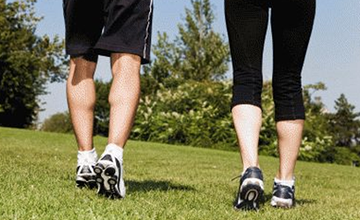What to eat before and after a workout


Did you know that it is very important to eat well before, during and after exercise in order to maximize your results? Scientists have known this for a long time and, according to them, food can either enhance or reduce the effectiveness of exercise. Therefore, they suggest what to eat so as to replenish the energy lost during the workout and strengthen our bodies.
What to eat before a workout
“Before you work out, consume carbohydrates” says Nancy Cohen, head of the Department of Nutrition at the University of Massachusetts. Carbohydrates are an important source of energy and strength.
According to the Mayo Clinic, a person with a 2000 calories diet should consume between 225-325 grams of carbohydrate per day (that translates to 450 grams of white bread per day – the food label provides you with the total carbohydrate content of a food). Our bodies need foods such as cereal bars, peanut butter, jam, banana, yogurt, pasta or other high-carbohydrate foods in order to carry out intense workouts.
Drinking sufficient amounts of liquids is equally important. During exercise, the body loses a lot of fluids, which need to be replaced. However, if you want to have an intense workout, it is advisable to take some measures. Nancy Cohen claims that exercising on an empty stomach should not become a habit.
A great way to give your body the energy it needs is by eating a meal a few hours before you exercise like eggs, cereals with milk, a toast with peanut butter or a yogurt with fruit.
How long before a workout should you eat?
Nancy Cohen recommends eating 1-4 hours before your exercise, but never later than that. In a study published in 2011 in the Journal of Nutrition, scientists at the University of Sydney, after evaluating 50 previous scientific researches, found that carbohydrates prior to exercise enhance the performance. Specifically, it has been shown that their intake increases speed and strength, especially in adults.
If you stay hungry for hours, your body perceives it as an “undernourishment” and a weakness. Thus, it uses the glucose to get energy and consequently it affects the muscle tissue of the body. This can lead to ketosis, a condition which can be harmful to the kidneys over the long term and cause fatigue and dizziness. So exercising on a completely empty stomach can help you easily burn local fat in the short term, but it harms your long-term health.
What to eat during a workout
During exercise, the body loses a lot of fluids. To replace them, drink a juice, an energy drink, or eat fruits, cereal bars or other sources of carbohydrates. Your choice depends on the type of exercise you are doing. If the exercise is intense and demanding, a liquid source of carbohydrates is more easily digested and, hence, more preferable for you.
What to eat after a workout
All your body needs after exercise is protein. Proteins are found in dairy products, eggs, meat and poultry. A few hours after intense exercise, it is necessary to replenish the substances lost and maintain protein synthesis. After a less intense exercise, a balanced meal that includes protein and carbohydrates is enough. This meal should be consumed within 2-3 hours after exercise. The replacement of fluids lost through exercise is also very important. So, drink some juice or water.
What to eat after a workout if you suffer from muscle pain
Have you ever experienced severe pain in different parts of your body or pulled muscles after a workout? In this case, experts recommend to drink watermelon or cherry juice. Surveys conducted in the past have shown that they relieve muscle pain after intense exercise or minor injuries.
What should you do if you want to lose weight?
In most cases, exercise alone cannot help you lose excess weight unless it is combined with a healthy diet program. In order to be effective, the program must be individualized and adapted to the needs of individuals. For this reason, it is better to consult a dietician.
Visit a dietician today!
